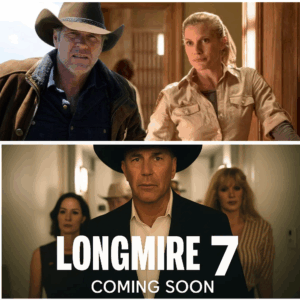In a candid and introspective interview with GQ published on July 24, 2025, country music sensation Tyler Childers opened up about his decision to retire one of his most beloved songs, “Feathered Indians,” from his live performances. The double-platinum track from his 2017 breakthrough album Purgatory has long been a fan favorite, with over 475 million streams on Spotify alone. Yet, Childers’ choice to step away from performing it reflects a profound personal evolution, rooted in cultural sensitivity and a commitment to supporting Indigenous communities. This revelation, coupled with his and his wife Senora May’s decision to donate the song’s royalties to Indigenous causes, has sparked widespread discussion, highlighting Childers’ authenticity and his willingness to confront complex social issues through his art.
The Rise of “Feathered Indians”
“Feathered Indians,” with its infectious melody and vivid storytelling, is one of the defining tracks of Tyler Childers’ career. Released on Purgatory, co-produced by Sturgill Simpson, the song captured the raw energy of young love, with lines like “My buckle makes impressions on the inside of her thigh” painting a visceral picture of passion. The song’s title and imagery were inspired by a Red Man Chewing Tobacco belt buckle Childers owned as a young man, a detail he shared in the GQ interview. Its boot-stomping rhythm, enriched by banjo, fiddle, and mandolin, made it a staple at his live shows, often met with raucous sing-alongs. A 2018 LR Baggs studio performance of the song on YouTube has garnered over 14 million views, cementing its place as a modern country classic.
For years, “Feathered Indians” was a cornerstone of Childers’ setlists, resonating with fans for its relatable lyrics and high-energy delivery. Its certification as double platinum by the RIAA in 2020 underscored its commercial success, a rare feat for an independent artist who has eschewed mainstream country radio. However, by March 2020, the song vanished from his live performances, leaving fans puzzled and sparking speculation on platforms like Reddit and X. Some theorized it was due to the song’s references to a past relationship predating his marriage to Senora May, while others suggested Childers was avoiding songs tied to his pre-sobriety days. The true reason, as revealed in the GQ interview, is far more nuanced and reflective of Childers’ growth as an artist and individual.
A Moment of Reckoning
Childers’ decision to retire “Feathered Indians” stemmed from a pivotal experience during a visit to a Blackfeet reservation in Montana a few years ago. In the GQ interview, he recounted meeting an Indigenous man named Sean, whose son was a fan of his music. The encounter stirred feelings of guilt in Childers, who admitted hoping Sean hadn’t heard “Feathered Indians.” The song’s title, referencing Native American imagery, and its use of the term “Indian” began to weigh heavily on him. “If there’s conversation amongst those individuals about whether they should be using that word or not, then it ain’t for me to be using,” Childers told GQ, his voice reportedly breaking with emotion. “It’s not mine.”
This moment of self-reflection was part of a broader period of soul-searching in 2020, a year marked by global reckoning on social issues, including racial and cultural sensitivity. Childers, who was also researching for his surprise album Long Violent History, began to question the implications of his lyrics. The term “Indian,” historically used to describe Indigenous peoples, has been criticized by many Native communities as a misnomer rooted in colonial history. Childers’ realization that his song might perpetuate stereotypes or cause discomfort led to a profound decision: he would no longer perform it. “That song has some of my favorite lines I’ve ever written, some of my favorite melodies,” he said. “Not playing that song is going to make people think.”
A Commitment to Action
Childers didn’t stop at retiring the song. In a powerful gesture, he and his wife, Senora May, decided to donate all royalties from “Feathered Indians” to support Indigenous communities through grants and community aid. This move aligns with their broader philanthropy through the Hickman Holler Appalachian Relief Fund, which supports rural communities in need. The decision has been met with praise from fans and advocates alike, with one X post noting, “Tyler Childers not playing ‘Feathered Indians’ and donating its royalties to Indigenous people shows real growth. Respect.”
The choice reflects Childers’ history of using his platform to address social issues. In 2020, he released Long Violent History, a surprise album accompanied by a six-minute video expressing solidarity with the Black Lives Matter movement and calling for empathy among his “white rural listeners.” The title track, a protest song, tackled systemic injustice, while the album’s proceeds supported his relief fund. His willingness to take bold stands, even at the risk of alienating some fans, has solidified his reputation as an artist of integrity. As one WMOT article noted, “Childers is selective about speaking for the public record, and when he does, he lands his punches, leaving people astonished.”
Fan Reactions and Controversy
The decision to shelve “Feathered Indians” has not been without controversy. For many fans, the song is a cherished part of Childers’ catalog, its absence from setlists a source of disappointment. A Reddit thread from August 2024 captured the sentiment, with one user lamenting, “I just went and saw Tyler live… No Feathered Indians… there’s just that one piece missing I’ll never get over.” Others have called the move “pretentious,” arguing that refusing to play a fan favorite is dismissive of the audience that propelled him to stardom. One X post took a more critical tone: “Tyler Childers not playing one of his most popular songs anymore because he doesn’t want to say the word ‘Indians’ is laugh out loud funny to me.”
Yet, many fans support Childers’ stance, appreciating his willingness to evolve. A Reddit commenter noted, “Artists change and grow. I think someday Childers will play those songs again. But, not until he’s ready.” Another X user defended him, writing, “For the folks mad over the Feathered Indians excerpt… His perspective changed when he took a class taught by an Indigenous man & since then he’s donated all royalties from the song to Indigenous people.” The debate underscores the tension between artistic freedom and fan expectations, a recurring theme for Childers, who has also faced criticism for his shorter setlists and focus on newer material over hits like “Whitehouse Road.”
Childers’ Broader Evolution
The GQ interview also highlighted Childers’ personal and artistic growth since Purgatory. Now 34, the Kentucky native has navigated sobriety, fatherhood, and a deepening commitment to his Appalachian roots. His 2023 album Rustin’ in the Rain stirred controversy with its lead single “In Your Love,” whose music video depicted a love story between two gay coal miners, further showcasing his willingness to challenge norms. Despite mixed reactions, the album was praised for its emotional depth, with tracks like “Luke 2:8-10” reflecting his exploration of spirituality.
Childers’ decision to retire “Feathered Indians” is part of this broader evolution. While some speculate the song’s absence is tied to his sobriety or its personal nature—rumors suggest it was inspired by a relationship before Senora May—the GQ interview clarifies that cultural sensitivity is the primary driver. Unlike “Whitehouse Road” or “Lady May,” which have returned to his setlists, “Feathered Indians” remains shelved, a deliberate statement. As he told GQ, the song’s absence is meant to provoke thought, encouraging fans to reflect on the language and imagery they consume.
A Legacy of Authenticity
Tyler Childers’ choice to stop performing “Feathered Indians” is a testament to his authenticity, a quality that has defined his career. From calling out the Americana Awards in 2017 to headlining sold-out shows at the Ryman Auditorium without radio support, Childers has remained true to his vision. His fans, described as “real life Rip Wheelers” in a Pulltab Sports review, are fiercely loyal, drawn to his unpolished honesty and vivid storytelling.
The GQ interview marks a significant moment, offering clarity on a decision that has puzzled fans for years. By retiring “Feathered Indians” and redirecting its royalties, Childers is not only acknowledging the power of his platform but also setting an example for other artists. His actions challenge the country music industry, often criticized for its reluctance to engage with social issues, to consider the impact of its words and imagery.
A Lasting Impact
As Childers prepares for his upcoming Sniper Hunter album, his legacy continues to grow. The decision to shelve “Feathered Indians” may disappoint some, but it has deepened his connection with fans who value his principles. The song’s royalties will support Indigenous communities, ensuring its legacy is one of positive change. As one fan wrote on X, “Tyler Childers is the real deal—making tough choices and putting his money where his mouth is.”
In a genre often bound by tradition, Childers is carving a new path, one that balances artistic integrity with social responsibility. His story is a reminder that music can be more than entertainment—it can be a catalyst for reflection and change. As he moves forward, fans will undoubtedly continue to debate “Feathered Indians,” but Childers’ commitment to doing what’s right ensures his music will resonate for generations to come.




